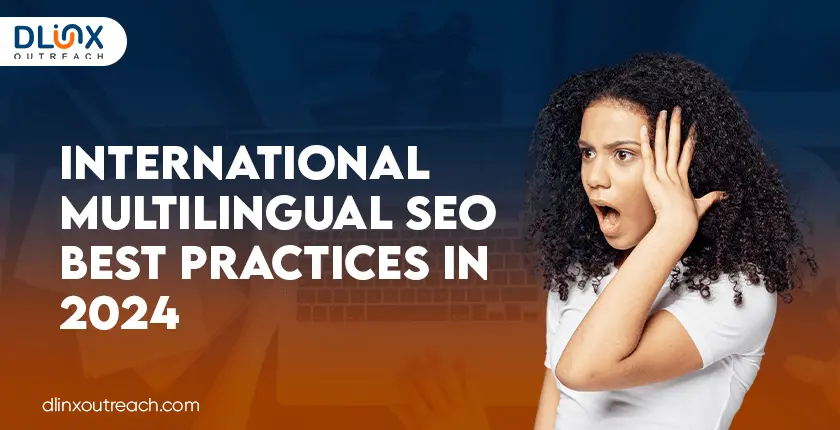To a captivating exploration of Google’s search accuracy. We’ve all turned to Google at some point in our lives to find answers, settle debates, or simply satisfy our curious minds. But just how accurate is the almighty search engine? Join us on this journey as we delve into the evolution of Google’s accuracy, unravel its intricacies, and discover why perfection may forever elude its grasp. Buckle up and prepare for a wild ride through the realms of search engine sorcery!
The Early Days: Google’s Humble Beginnings
Let’s rewind the clock to the late 1990s when the internet was still in its infancy, and search engines were battling for supremacy. Google emerged as a fresh-faced contender, armed with innovative algorithms and a commitment to organizing the world’s information. It quickly gained popularity thanks to its ability to deliver relevant search results. However, perfection was a distant dream even in those early days.
Read | What is Local SEO
Google’s Algorithmic Wizardry: A Work in Progress
Behind the scenes of Google’s search engine lies a complex web of algorithms and machine learning that powers its search results. These algorithms analyze countless web pages, evaluate relevance, and attempt to provide users with the most accurate answers. While Google’s algorithms have come a long way, they are far from infallible.
Imagine Google’s search algorithm as a brain, tirelessly crunching data to provide the best results. But like any brain, it occasionally stumbles. It’s like that time your great aunt tried to bake a cake from scratch, only to realize halfway through that she forgot to add the flour. Oops! Similarly, Google’s algorithms sometimes miss the mark, serving up results that make you scratch your head and wonder if the internet has gone mad.
The Moving Target of Accuracy: The Evolving Web

The internet is a constantly evolving entity. New information is published every second, websites change their content, and trends come and go. Amidst this ever-changing landscape, Google strives to maintain accuracy, but it’s akin to trying to hit a moving target while riding a unicycle. It’s a daring balancing act, to say the least.
Think of it this way: Google is the meticulous librarian of the internet, sorting through shelves upon shelves of information to find the most relevant books. But imagine those books constantly reshuffling themselves, with new ones magically appearing and old ones vanishing. It’s like playing a never-ending game of literary Whac-A-Mole! So, while Google does its best to stay on top of the shifting internet tides, absolute accuracy remains an elusive quest.
Read | Which Reports Indicate How Traffic Arrived At A Website
The Human Factor: Imperfections in the Equation
Despite the brilliance of Google’s algorithms, they are not the sole determinants of search accuracy. Human intervention plays a crucial role in fine-tuning and improving search results. Quality raters, often working from remote locations and sipping copious amounts of coffee, evaluate the relevance and usefulness of web pages. They provide invaluable feedback that helps Google refine its algorithms over time.
But let’s face it, humans aren’t infallible either. Even the most experienced quality rater can have an off day or overlook certain nuances. It’s like trying to paint a masterpiece while being pelted with flying tomatoes at a chaotic food fight. So, while human expertise is instrumental in Google’s quest for accuracy, a small margin of error is bound to sneak in.
The Battle Against Deception: The Spam Menace
In the vast and treacherous realm of the internet, there exists a dark force known as spam. These sneaky scoundrels employ cunning tactics to manipulate search engine rankings and pollute the online landscape with low-quality content. Google, being the valiant knight of search, takes up arms against these digital miscreants.
To combat spam, Google continuously updates its algorithms to detect and penalize deceptive practices. This ongoing battle ensures that search results remain as accurate and trustworthy as possible. However, like weeds that stubbornly sprout between cracks in the pavement, some spammy sites manage to slip through the cracks. So, while Google’s accuracy remains impressively high, occasional skirmishes with spammy impostors are inevitable.
The Imperfect Perfectionist (Google)

In the realm of search engines, Google reigns supreme, armed with an army of algorithms, human expertise, and an unwavering dedication to accuracy. Yet, despite its best efforts, achieving absolute accuracy in an ever-changing digital landscape is like trying to catch a rainbow or get your cat to stop knocking things off shelves (good luck with that!).
So, the next time you turn to Google for answers, take a moment to appreciate the intricate dance between algorithms, human expertise, and the dynamic nature of the internet. Embrace the occasional quirks, chuckle at the unexpected results, and marvel at the technological marvel that is Google. It may not be 100 percent accurate, but it’s pretty darn close. After all, who needs perfection when you can have a search engine that’s both informative and entertaining?
Read | Benefits of Hiring a Link Building Company
Why Google is so Accurate?
Google is a down-the-line platform to find anything online. And It is an unspoken trend to think that its search engine will always provide you with everything you are looking for.
But the question arises, is Google always right? The answer is subject to how you perceive the SERPs. But believe it that you can claim it safely, ‘Google isn’t always right.’
This might be a shocker for many people, but things will start making sense when you dive deeper into the details.
Google only pays attention to website domain authority and SEO before ranking them in the three-pack for your relevant keywords. The data provided in such pages may be insights from a content generator that are not based on facts, and you find it hard to relate.
Although there are several sources that are authentic, it is hard to say that they will be ranked high enough for you to go through. Therefore, everything on Google might not always be correct.
This article will revolve around anything and everything that you must know about Google before deeming it accurate or inaccurate. Let’s explore the piece to enhance your knowledge!
Read | Is Affiliate Marketing a Pyramid Scheme
How Google Works? A Complete Cycle of Google Crawling, Indexing and Ranking
Google is constantly testing and changing its results. For example, It always tests various images on a search result page to figure out what works best for users. It continually changes its algorithms, which means when you search for a keyword in the future, it may show something different in the top SERPs.
Google uses algorithms to determine the most efficient and relevant results for a particular query. The whole process of Google search usually works in 3 stages including:
Crawling
Google works as a platform with millions of websites, including billions of pages. Since these pages don’t have any central registry or something, Google needs to find new pages through already discovered links. This process of finding new pages is called ‘URL Discovery.’
When Google discovers a URL, it then crawls/visits the page to find its content. The crawling procedure is done by Googlebot or crawlers programmed to extract information from several pages. However, they are designed not to crawl the site too fast to skip some essential information.
Google uses the current version of Chrome to display the website and run any JavaScript it detects during the crawl. It is pretty similar to how a browser renders the pages you visit. Rendering is vital because many websites employ JavaScript to deliver content to a page; without rendering, Google may miss that content.
If some pages have limited access given by the site owners, the crawlers may not be able to access those.
Indexing
After crawling a page, Google then tries to decipher the contents and purpose of the page. This is called indexing.
Indexing includes analyzing and processing every type of content, whether written, graphic, key content tags, attributes, links, or anything that is on the page. The whole process gives Google a thorough idea of what that page is about.
This stage allows Google to determine whether the content on the page is of high quality and trustworthy or not. It also runs algorithms to find if a particular page is a duplicate of another page over the whole web.
Serving Results
Next comes serving the relevant results for your inserted query. Google Web creates the results based on the highest quality and most relevant pages based on your keywords or phrases. The relevancy doesn’t always stay limited to the keywords but extends a step forward with location, language, the device of a user, and so much more.
The results you get on the Google page are entirely centered based on your query, and if you make a few changes, the results might change.
_ The whole process of Google search and results display doesn’t involve a single step where fact-checking is a part of it. Therefore, You can’t claim the results shown to be undeniably accurate.
Evolution Of Google Search Engine

Advancing competition and a dynamic landscape forced every search engine to upgrade their understanding and knowledge about everything. Google is no exception. Over the previous decade, Google has invested in improving its query understanding. The resulting changes include:
Web Answers: This is Google recognizing evolution that you’re making a query for which it attempts to deliver a result based on quality signals. Because this procedure is still algorithmic, there have also been some humiliating failures in the past.
Knowledge Graph: The knowledge graph is Google’s storehouse of factual information. Although much of it is algorithmically scraped, human curation is also used.
Spam Protection: Google earns a lot through ads; however, spam protection detects the ad spam and takes steps against them. The ad-spams usually involve false advertisements that do not conform to Google guidelines.
Facts About Google

There is no doubt that Google is a user-friendly, highly effective search engine with multiple advantages. It is helping several businesses, whether Amazon or Dlinx Outreach, to reach the apex. But besides its countless benefits, the question remains, how accurate is Google search console?
There are several facts that everyone must know before mindlessly trusting them. Let’s go through them together.
Never 100% Right
One of the Google executives claimed that everything you see on Google is not valid.
Google does not answer your questions. All it does is search for sites that have the exact keywords as your query while ignoring fluff words. If there are a large number of relevant results, it tends to narrow down the factors and employs an exceedingly sophisticated collection of signals to choose which ones to rank higher.
Everything aside, Google is simply looking for a bag of words to present before you.
It is often neglected that Google itself is not a web content producer. It is only a source to connect various sources to a single platform. Whatever you see on Google has different backgrounds.
The content on Google is provided by people all around the world. There is no denying that not all authors have the professional qualifications to talk on specific topics. Most of the content pieces revolve around individual perspectives and rarely around the facts.
In another context, Even though Google search results are usually correct, sometimes some Glitches are hard to detect by a non-professional audience but are easy to spot by professionals.
Can’t Do It All
Indexing all the pages and their content is a lot, and Google can’t do it all by itself.
As previously mentioned, web pages are not certified; therefore, among billions of pages, Google has yet to discover a lot. The web pages indexed by Google have content of their own, and Google can not yet index every single piece of content on every web.
Google knows it is imperfect and admits that it can’t crawl all elements of every website as efficiently as it is deemed to be. There might be instances where a quality piece of information is left behind in the dark while other content pieces get to the light of day.
How to Extract The Most Accurate Results from Google?

Every Internet user should be able to evaluate the authenticity of sources and do online fact-checking. How do you know when Google is giving you inaccurate information?
Whether Google is correct depends upon your perspective. Do the results match what you are looking for? It is one of the most common concerns when you are trying to write a research paper. Here are a few tricks that you can utilize to analyze whether the source is authentic and reliable.
Refer to the Author’s Credentials
Who is writing the article matters the most. An author’s bio can provide you with a reason to trust or disregard a particular article. Suppose you are searching for information on the law, but the author is not a veteran in the relevant industry. Could you trust that source? No, right?
Freelance writers usually take on tasks that might not relate to their area of expertise. They just refer to every piece of information they can find online and resort to it for creating an article. This process decreases the authenticity and reliability by several folds.
The best way to avoid regret in the latter stages is to refer to the author’s credentials before diving into the content. Make your judgment after learning about the experience and expertise of the author.
In case the author’s bio is made up, you can see if they have their own website, LinkedIn profile, Twitter account, or other proofs that can prove their credibility.
Diversify Your Research
Another way to determine the reliability of a content piece is to look for the website’s overall content type, the comments, and reviews of their services, if any.
Looking at the broader perspectives of the people involved, you might get a better idea of whether to believe the source or not.
You can also find out the site’s authority to see if other websites are linking to them and how much their traffic is. Organic traffic can provide you with a vague idea of the readability of a source.
However, you must remember that most of the traffic is just like you, who also doesn’t know the accuracy of a website’s content pieces. So, you must analyze yourself to see through the unreliable and reliable content.
Use Google Scholar

The best way for academic research is to use Google Scholar, where several research papers of experts are available for educational purposes.
Google Scholar allows you to search for articles, research papers, and books from academic publishers, depositories, and universities. You can also find listed citations to other scholarly published journals, reports, abstracts, and more.
Search For Statistics in Content
Sometimes, the information you seek can be described way better with statistics. Consider it a red flag if you do not see any stats added in the content piece.
Of course, some content doesn’t need statistics; for such content pieces, look for any credible reference to the data provided. Too much general information without many examples does not prove to be taken seriously.
The Bottom Line
Thinking about how often Google is wrong can be a profound and disturbing question. For a large audience, Google is the ultimate source of information that they can turn towards. Some strongly believe that Google is more innovative and always right, so they put all their chips in favor of Google results.
There is a need to understand that search engines only search for you based on website information. It all boils down to your judgment and analysis to determine whether the information is correct and worth your trust.
Whenever you make a Google query, analyze all the search results rather than sticking to everything that is presented.
Related Articles:
- Free Guest Posting Templates
- Should Black Hat Link Building be Avoided?
How Many Backlinks per Month Are Safe - How Much Does Link Building Cost?
- How Many Backlinks Per Day Is Safe
- What are the Benefits of Guest Posting?
- How to Get a Permanent Backlink?
- What Is Testimonial Link Building
- What is Guest Posting in SEO?
- How to Write an Engaging Blog Post
- Common Guest Posting Mistakes to Avoid
- What Is The Difference Between Backlinks And Link Building?





